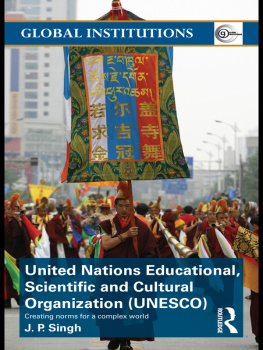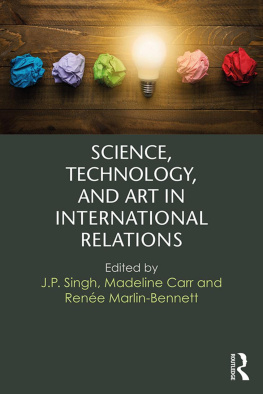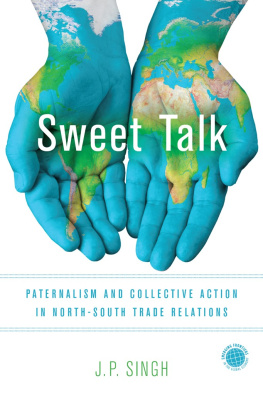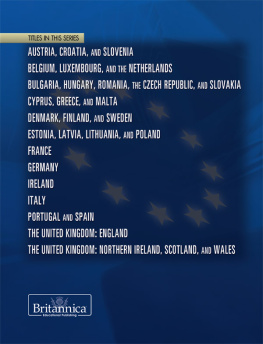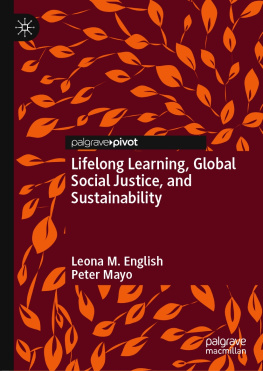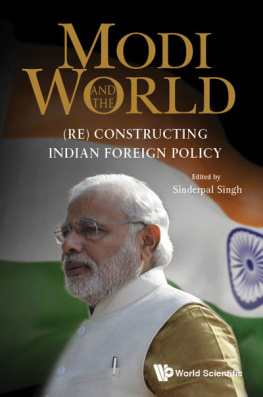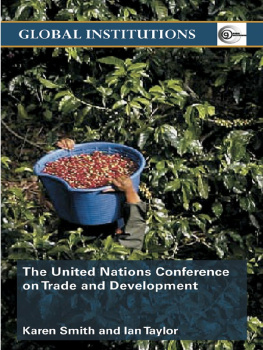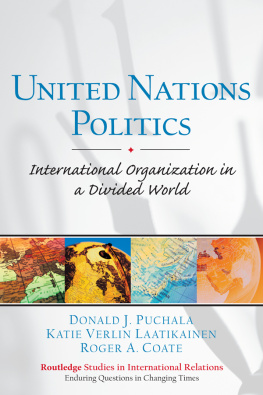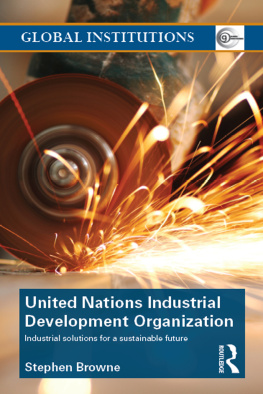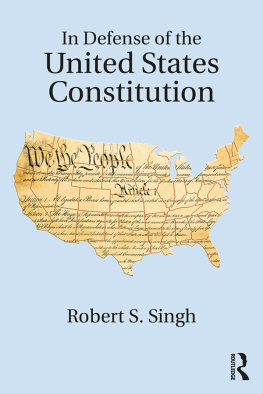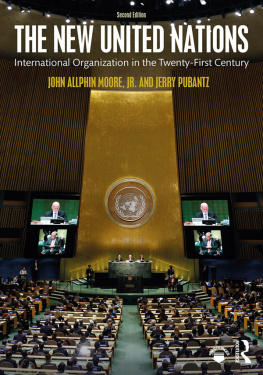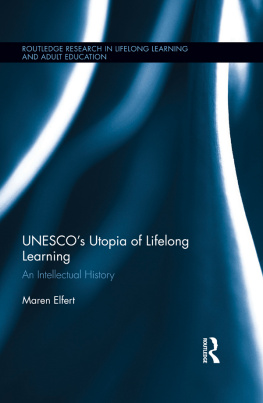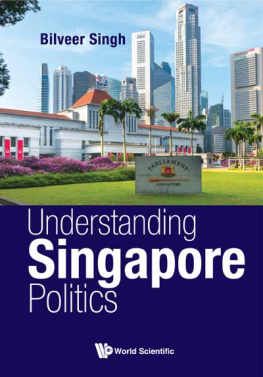United Nations Educational, Scientific and Cultural Organization (UNESCO)
This book traces the history of UNESCO from its foundational idealism to its current stature as the pre-eminent international organization for science, education, and culture, building a well-rounded understanding of this important organization.
The book:
provides an overview of the organization and its institutional architecture in the context of its humanistic idealism;
details the subsequent challenges UNESCO faced through the Cold War and power politics, global dependence and interdependence, and the rise of identity and culture in global politics;
analyzes the functioning of UNESCO administration, finance, and its various constituencies including the secretariat, member states, and civil society;
explores the major controversies and issues underlying the initiatives in education, science, culture and communication;
examines the current agenda and future challenges through three major issues in UNESCO: Education for All, digital divide issues, and norms on cultural diversity;
assesses the role of UNESCO in making norms in a complex world of multiple actors and intersecting issue areas.
Reflecting on UNESCOs vision, its everyday practices, and future challenges, this work is an essential resource for students and scholars of international relations and international organizations.
J. P. Singh is Associate Professor at the graduate program in Communication, Culture and Technology at Georgetown University, USA.
About the series
The Global Institutions Series is designed to provide readers with comprehensive, accessible, and informative guides to the history, structure, and activities of key international organizations as well as books that deal with topics of key importance in contemporary global governance. Every volume stands on its own as a thorough and insightful treatment of a particular topic, but the series as a whole contributes to a coherent and complementary portrait of the phenomenon of global institutions at the dawn of the millennium.
Books are written by recognized experts, conform to a similar structure, and cover a range of themes and debates common to the series. These areas of shared concern include the general purpose and rationale for organizations, developments over time, membership, structure, decision-making procedures, and key functions. Moreover, current debates are placed in historical perspective alongside informed analysis and critique. Each book also contains an annotated bibliography and guide to electronic information as well as any annexes appropriate to the subject matter at hand.
The volumes currently published are:
46 United Nations Educational, Scientific and Cultural Organization (UNESCO) (2010)
Creating Norms for a Complex World
by J. P. Singh (Georgetown University)
45 The International Labour Organization (2010)
Coming In from the Cold
by Steve Hughes (Newcastle University) and Nigel Haworth (University of Auckland)
44 Global Poverty (2010)
How Global Governance Is Failing the Poor
by David Hulme (University of Manchester)
43 Global Governance, Poverty, and Inequality (2010)
Edited by Jennifer Clapp (University of Waterloo) and Rorden Wilkinson (University of Manchester)
42 Multilateral Counter-Terrorism (2010)
The global politics of cooperation and contestation
by Peter Romaniuk (John Jay College of Criminal Justice, CUNY)
41 Governing Climate Change (2010)
by Harriet Bulkeley (Durham University) and Peter Newell (University of East Anglia)
40 The UN Secretary-General and Secretariat (2010)
Second edition
by Leon Gordenker (Princeton University)
39 Preventive Human Rights Strategies (2010)
by Bertrand G. Ramcharan (Geneva Graduate Institute of International and Development Studies)
38 African Economic Institutions (2010)
by Kwame Akonor (Seton Hall University)
37 Global Institutions and the HIV/AIDS Epidemic (2010)
Responding to an international crisis
by Franklyn Lisk (University of Warwick)
36 Regional Security (2010)
The capacity of international organizations
by Rodrigo Tavares (United Nations University)
35 The Organisation for Economic Co-operation and Development (2009)
by Richard Woodward (University of Hull)
34 Transnational Organized Crime (2009)
by Frank Madsen (University of Cambridge)
33 The United Nations and Human Rights (2009)
A guide for a new era, second edition
by Julie A. Mertus (American University)
32 The International Organization for Standardization (ISO) (2009)
Global governance through voluntary consensus
by Craig N. Murphy (Wellesley College) and JoAnne Yates (Massachusetts Institute of Technology)
31 Shaping the Humanitarian World (2009)
by Peter Walker (Tufts University) and Daniel G. Maxwell (Tufts University)
30 Global Food and Agricultural Institutions (2009)
by John Shaw
29 Institutions of the Global South (2009)
by Jacqueline Anne Braveboy-Wagner (City College of New York, CUNY)
28 International Judicial Institutions (2009)
The architecture of international justice at home and abroad
by Richard J. Goldstone (Retired Justice of the Constitutional Court of South Africa) and Adam M. Smith (Harvard University)
27 The International Olympic Committee and the Olympic System (2009)
The governance of world sport
by Jean-Loup Chappelet (IDHEAP Swiss Graduate School of Public Administration) and Brenda Kbler-Mabbott
26 The World Health Organization (2009)
by Kelley Lee (London School of Hygiene and Tropical Medicine)
25 Internet Governance (2009)
The new frontier of global institutions
by John Mathiason (Syracuse University)
24 Institutions of the Asia-Pacific (2009)
ASEAN, APEC, and beyond
by Mark Beeson (University of Birmingham)
23 UNHCR (2008)
The politics and practice of refugee protection into the twenty-first century
by Gil Loescher (University of Oxford), Alexander Betts (University of Oxford), and James Milner (University of Toronto)
22 Contemporary Human Rights Ideas (2008)
by Bertrand G. Ramcharan (Geneva Graduate Institute of International and Development Studies)
21 The World Bank (2008)
From reconstruction to development to equity
by Katherine Marshall (Georgetown University)
20 The European Union (2008)
by Clive Archer (Manchester Metropolitan University)
19 The African Union (2008)
Challenges of globalization, security, and governance
by Samuel M. Makinda (Murdoch University) and Wafula Okumu (McMaster University)

